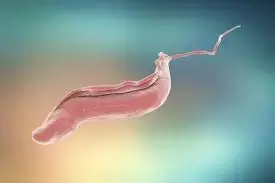- Home
- Medical news & Guidelines
- Anesthesiology
- Cardiology and CTVS
- Critical Care
- Dentistry
- Dermatology
- Diabetes and Endocrinology
- ENT
- Gastroenterology
- Medicine
- Nephrology
- Neurology
- Obstretics-Gynaecology
- Oncology
- Ophthalmology
- Orthopaedics
- Pediatrics-Neonatology
- Psychiatry
- Pulmonology
- Radiology
- Surgery
- Urology
- Laboratory Medicine
- Diet
- Nursing
- Paramedical
- Physiotherapy
- Health news
- Fact Check
- Bone Health Fact Check
- Brain Health Fact Check
- Cancer Related Fact Check
- Child Care Fact Check
- Dental and oral health fact check
- Diabetes and metabolic health fact check
- Diet and Nutrition Fact Check
- Eye and ENT Care Fact Check
- Fitness fact check
- Gut health fact check
- Heart health fact check
- Kidney health fact check
- Medical education fact check
- Men's health fact check
- Respiratory fact check
- Skin and hair care fact check
- Vaccine and Immunization fact check
- Women's health fact check
- AYUSH
- State News
- Andaman and Nicobar Islands
- Andhra Pradesh
- Arunachal Pradesh
- Assam
- Bihar
- Chandigarh
- Chattisgarh
- Dadra and Nagar Haveli
- Daman and Diu
- Delhi
- Goa
- Gujarat
- Haryana
- Himachal Pradesh
- Jammu & Kashmir
- Jharkhand
- Karnataka
- Kerala
- Ladakh
- Lakshadweep
- Madhya Pradesh
- Maharashtra
- Manipur
- Meghalaya
- Mizoram
- Nagaland
- Odisha
- Puducherry
- Punjab
- Rajasthan
- Sikkim
- Tamil Nadu
- Telangana
- Tripura
- Uttar Pradesh
- Uttrakhand
- West Bengal
- Medical Education
- Industry
Oral fexinidazole cost-effective treatment of human African trypanosomiasis: Study

Oral fexinidazole was found to be both convenient and cost-effective treatment for patients with stage II gambiense human African trypanosomiasis (g-HAT), in systematic review. However it may be associated with an increased mortality and relapse rate compared with other gambiense human African trypanosomiasis (g-HAT) treatments. These findings have been published in the Cochrane Database of Systematic Reviews.
Human African trypanosomiasis, or sleeping sickness, is a severe disease affecting people in the poorest parts of Africa. It is usually fatal without treatment. Conventional treatments require days of intravenous infusion, but a recently developed drug, fexinidazole, can be given orally. Another oral drug candidate, acoziborole, is undergoing clinical development and will be considered in subsequent editions. A study was conducted to evaluate the effectiveness and safety of currently used drugs for treating second‐stage Trypanosoma brucei gambiense trypanosomiasis (gambiense human African trypanosomiasis, g‐HAT).
On 14 May 2021, we searched the Cochrane Infectious Diseases Group Specialized Register, the Cochrane Central Register of Controlled Trials, MEDLINE, Embase, Latin American and Caribbean Health Science Information database, BIOSIS, ClinicalTrials.gov, and the World Health Organization International Clinical Trials Registry Platform. We also searched reference lists of included studies, contacted researchers working in the field, and contacted relevant organizations. Eligible studies were randomized controlled trials that included adults and children with second‐stage g‐HAT, treated with anti‐trypanosomal drugs currently in use.
Main results:
This trial was conducted between October 2012 and November 2016 in the Democratic Republic of the Congo and the Central African Republic, and included 394 participants. The study reported on efficacy and safety, with up to 24 months' follow‐up. We judged the study to be at low risk of bias in all domains except blinding; as the route of administration and dosing regimens differed between treatment groups, participants and personnel were not blinded, resulting in a high risk of performance bias.
Mortality with fexinidazole may be higher at 24 months compared to NECT. There were 9/264 deaths in the fexinidazole group and 2/130 deaths in the NECT group (RR 2.22, 95% CI 0.49 to 10.11; 394 participants; low‐certainty evidence). None of the deaths were related to treatment.
Fexinidazole likely results in an increase in the number of people relapsing during follow‐up, with 14 participants in the fexinidazole group (14/264) and none in the NECT group (0/130) relapsing at 24 months (RD 0.05, 95% CI 0.02 to 0.08; 394 participants; moderate‐certainty evidence).
They are uncertain whether there is any difference between the drugs regarding the incidence of serious adverse events at 24 months. (31/264 with fexinidazole and 13/130 with NECT group at 24 months). Adverse events were common with both drugs (247/264 with fexinidazole versus 121/130 with NECT), with no difference between groups (RR 1.01, 95% CI 0.95 to 1.06; 394 participants; moderate‐certainty evidence).
Thus, Oral treatment with fexinidazole is much easier to administer than conventional treatment, but deaths and relapse appear to be more common. However, the advantages or an oral option are considerable, in terms of convenience, avoiding hospitalisation and multiple intravenous infusions, thus increasing adherence.
Reference
Lutje V, Probyn K, Seixas J, Bergman H, Villanueva G. Chemotherapy for second-stage human African trypanosomiasis: drugs in use. Cochrane Database Syst Rev. Published online December 9, 2021. doi:10.1002/14651858.CD015374
Dr. Shravani Dali has completed her BDS from Pravara institute of medical sciences, loni. Following which she extensively worked in the healthcare sector for 2+ years. She has been actively involved in writing blogs in field of health and wellness. Currently she is pursuing her Masters of public health-health administration from Tata institute of social sciences. She can be contacted at editorial@medicaldialogues.in.
Dr Kamal Kant Kohli-MBBS, DTCD- a chest specialist with more than 30 years of practice and a flair for writing clinical articles, Dr Kamal Kant Kohli joined Medical Dialogues as a Chief Editor of Medical News. Besides writing articles, as an editor, he proofreads and verifies all the medical content published on Medical Dialogues including those coming from journals, studies,medical conferences,guidelines etc. Email: drkohli@medicaldialogues.in. Contact no. 011-43720751


